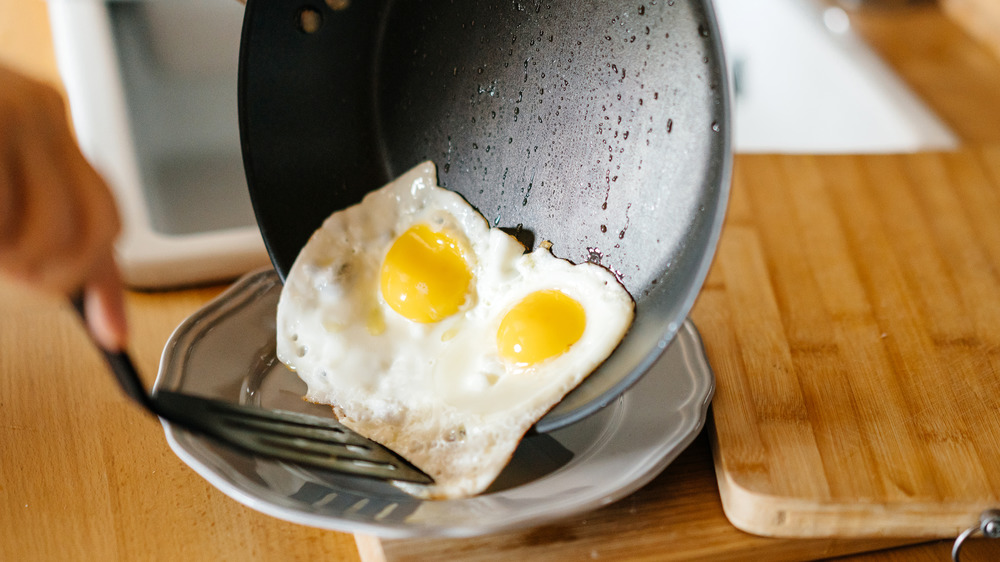Don't Believe This Myth About Raw Eggs
Remember when you were younger and your mom warned you not to eat the uncooked cookie dough because it contained raw eggs? She wasn't wrong to be concerned. Raw eggs get a bad rap — and for good reason. According to the Centers for Disease Control and Prevention (CDC), consuming raw or undercooked eggs can increase your risk of contracting salmonella, a bacteria carried by poultry that can contaminate the inside of eggshells. The agency says approximately one in every 20,000 eggs carry the harmful germ (via University of Minnesota Extension).
But despite the dangers of foodborne illness, some people still choose to consume raw eggs in the name of #health. They're especially popular in bodybuilding and fitness spheres, with people adding them to shakes (or just drinking them raw) because they believe that raw eggs pack more protein than their cooked counterparts. But is that really true? Here's what science has to say about the common myth.
Raw eggs don't have more protein than cooked eggs
While gym-goers who are serious about building muscle may swear that consuming raw eggs on the regular is contributing to their gains, they could actually be getting less nutrition than if they ate cooked eggs. A dietitian from Marshfield Clinic explains that our bodies actually only absorb 50 to 60 percent of the protein from raw eggs compared to 90 percent of the protein from cooked eggs. According to Healthline, this means that cooked eggs are 80 percent more digestible than raw ones. That means that if the average large egg contains six grams of protein, your body would only absorb about three grams if you ate it raw. On the other hand, if you ate it cooked, your body would likely absorb closer to 5.5 grams.
That being said, raw eggs still provide plenty of good-for-you nutrients, including choline, fat, and folate. The same Marshfield Clinic dietitian says that if you do choose to consume raw eggs, make sure that they're pasteurized to reduce your risk of getting salmonella.

